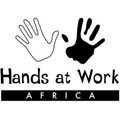Story
Over the last few months, a serious drought has hit Mozambique, Malawi, Zimbabwe and Zambia. This is of such seriousness that both the governments of Malawi and Zambia have declared a state of emergency. Because Hands at Work focuses its work on the most vulnerable communities, subsistence farming is the primary way that people survive. Maize and other vegetables are grown and then harvested, after which they are either sold for profit or used to feed families. With little rain, the crops are unable to grow properly, forcing families into a state of uncertainty, unsure of what will happen between now and the next harvest. This means that families are facing an extended hunger season, which for the most vulnerable families requires urgent intervention.
As an immediate priority, Hands at Work is responding to families requiring urgent food support in the coming months. For a second phase of more sustainable support, Hands at Work will provide seed and fertiliser for the next planting season. Hands at Work is always considering the best way to respond to these crisis situations to equip and empower families and communities with longer term solutions. This will be increasingly important, as the Zambian Environment Minister, Collins Nzovu, has warned, “This situation is a harbinger of what is in store for the region as the climate crisis worsens.”
Be part of helping us bring relief to the most vulnerable children and communities impacted by this crisis and others like it.
Hands at Work serves in over 60 communities across 8 countries in sub-Saharan Africa, where HIV/AIDS, poverty and numbers of children orphaned are at overwhelming levels and support structures are very low. Your generosity will help not only to bring relief in the aftermath of crises like this, providing support where there is the greatest need, but will serve also to build greater resilience in some of Africa's poorest communities.
 Campaign by
Campaign by 